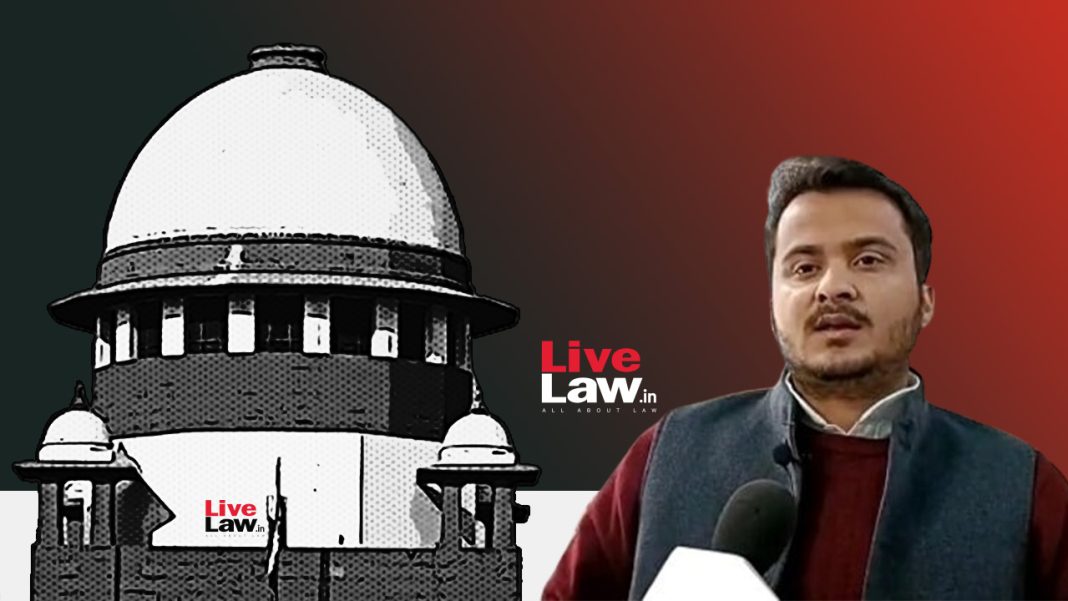The Supreme Court of India has once again underscored the principle of non-interference in ongoing investigations, particularly when serious allegations are involved. In a significant development, the apex court recently dismissed a plea by Samajwadi Party leader Abdullah Azam Khan, son of veteran politician Azam Khan, seeking to quash an FIR filed against him. The FIR pertains to the alleged use of forged documents to obtain a passport, a charge that has kept the former MLA embroiled in legal battles.
This ruling by the Supreme Court means that the criminal proceedings against Abdullah Azam Khan, concerning the passport forgery case, will continue. The decision by the highest judicial body reinforces the legal framework which allows investigations to run their course, preventing premature intervention unless there is an evident abuse of process.
The Genesis of the Passport Forgery Allegation
The legal troubles for Abdullah Azam Khan in this particular matter trace back to an FIR lodged against him in 2019 at the Civil Lines police station in Rampur, Uttar Pradesh. The complaint alleged that Khan had fraudulently acquired a passport by submitting forged documents related to his birth date. Specifically, the accusation centered on the use of two different birth certificates—one indicating his birth year as 1993 and another as 1990—to avail different benefits and establish his age for various purposes, including eligibility for elections and obtaining travel documents.
The discrepancy in birth dates became a critical issue, not just for the passport case but also in other legal challenges that have plagued Abdullah Azam Khan’s political career. The complainant alleged that the passport was obtained based on the false information, constituting serious offences under the Indian Penal Code, including forgery and cheating.
Prior to approaching the Supreme Court, Khan had sought relief from the Allahabad High Court, which had also refused to quash the FIR against him. The High Court’s decision was a clear indication that a prima facie case existed, warranting a thorough investigation. Undeterred, Khan then escalated the matter to the Supreme Court, hoping for a favourable outcome that would bring an end to the criminal proceedings.
Supreme Court’s Deliberation and Dismissal
The plea filed by Abdullah Azam Khan before the Supreme Court was heard by a bench comprising Justice B.R. Gavai and Justice Sandeep Mehta. Khan’s legal team argued for the quashing of the FIR, citing various grounds, including the alleged lack of concrete evidence and the political motivations behind the complaint. They contended that the FIR was an abuse of the legal process, aimed at harassing the leader.
However, the apex court carefully considered the arguments presented and the materials on record. The bench remained steadfast in its approach, emphasizing the established legal principle that courts should exercise extreme caution and restraint in quashing FIRs at the initial stages of an investigation. Interfering prematurely could impede the investigation process and prevent the truth from emerging.
During the proceedings, the bench observed, “At this stage, when there are serious allegations regarding the use of forged documents, it would not be appropriate for this Court to interfere under Article 136 of the Constitution.” This statement underscores the judiciary’s commitment to allowing law enforcement agencies to conduct their investigations without unwarranted judicial intervention, especially when allegations of forgery and fraud are involved, which strike at the root of public trust and legal integrity.
The dismissal by the Supreme Court signifies that the investigative agencies now have the clear mandate to proceed with their inquiry into the allegations against Abdullah Azam Khan. The court’s decision ensures that the matter will be adjudicated on its merits through the regular criminal justice process, rather than being halted at an preliminary stage.
Implications for Abdullah Azam Khan
The Supreme Court’s decision marks another chapter in Abdullah Azam Khan’s ongoing legal battles. This particular case adds to a series of legal challenges that have significantly impacted his political career, including his previous disqualification from the Uttar Pradesh Legislative Assembly due to discrepancies in his age. The charge of using forged documents for a passport is a serious criminal offense that, if proven, carries significant penalties.
For Abdullah Azam Khan, the dismissal of his plea means he will have to face trial in the lower courts. The investigation will continue, and charges may eventually be framed. The outcome of this trial will not only have personal repercussions for the SP leader but could also influence his political standing and future aspirations. The case highlights the rigorous scrutiny faced by public figures in India, especially concerning document authenticity and adherence to legal norms.
The Supreme Court’s ruling reinforces the message that the judiciary will not easily quash FIRs when credible allegations, particularly involving forgery and fraudulent practices, are made. It serves as a reminder of the robust legal system in India, where due process is paramount, and investigations are given the necessary space to ascertain facts before judicial interference is considered.




